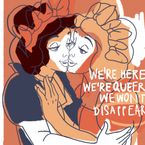Impact of climate change on bird and parasite populations
Will a warmer planet be a place with more parasites and diseases? Although the range of dangerous parasites, such as ticks, mosquitoes and Trypanosoma cruzi, is increasing, this may be the exception rather than the rule. Researchers at the University of Washington analysed 85 species of parasites – most of which have seen population declines over the past 140 years, comparable to the most endangered wildlife species. In all species, the number of parasites decreased by 38% with each Celsius degree rise in temperature.
Fewer and fewer migratory bird species are arriving in the UK to overwinter due to the climate crisis. The starling population in Somerset has declined by at least 75 per cent, and the Bewick’s swan population at Slimbridge Wetland Centre by 70 per cent. Smews, Goldeneyes and Bean Geese are also declining. Bird numbers are declining due to habitat loss and the impact of a rapidly warming climate on food availability. The warmer climate is also causing some birds to stop earlier in their migration route and not cross the North Sea.
Meanwhile, according to research by the RSPB Wildlife Charity, bird populations are increasing on those farms that allocate around ⅒ of their land to nature-friendly activities. As part of environmental programmes, farmers have been sowing the edges of fields, growing flowers there and leaving stubble fields to provide food for birds in winter. The number of birds living on farmland has more than halved since 1970. Some species, such as starlings and skylarks, have seen dramatic population declines.


























